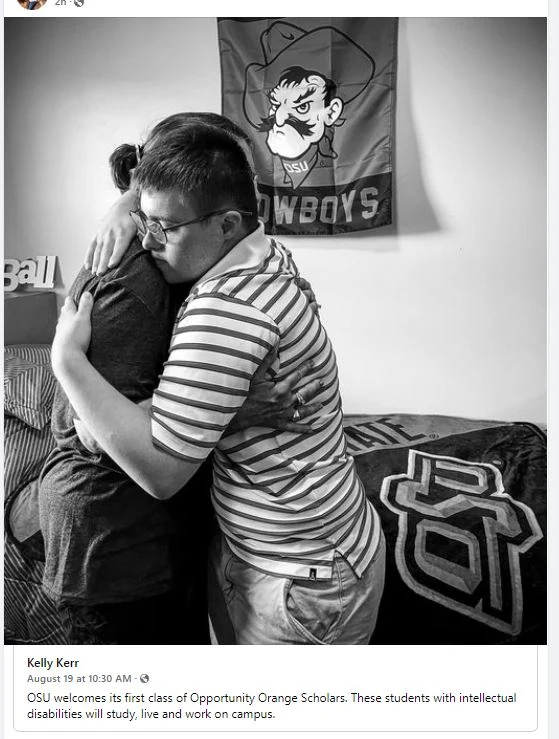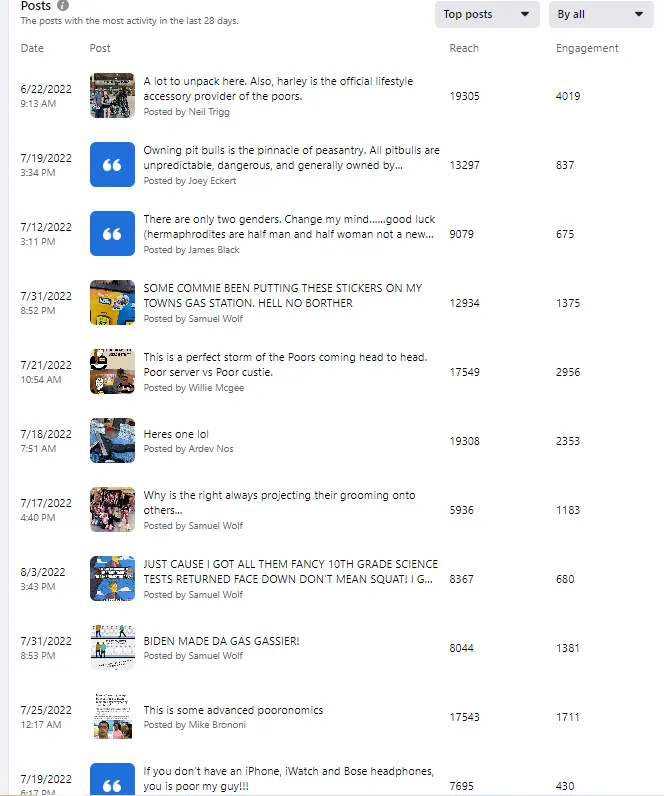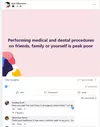- 20
- 45
I’m about to default. Sallie Mae refused to put my loan in forbearance and tried to get me to pay while I was searching for job and starting school in August. I told them I couldn’t pay and they refused to work with me. Once this goes to a 3rd party collector, I will dispute the debt. I did this with multiple medical bills by disputing the charges and they haven’t called me back since.
With this life hack get any debt to go away. Just make no money and they have no wages to garnish - just like that there's no consequences
I read a student loan collector operator Reddit thread once. They said basically all you need to do is tell them you can tell them you will continue paying but you can only pay $5 a month. Legally they have to accept that, and you will never go in to collections because technically you are paying.
I wish I could find the Reddit post. It was actually really informative.

I post there a lot
Also, yeah me raises hand
The constant voicemail, email, and mail spam went way down when I defaulted on my three Sallie Mae private student loans. It's just on and off spam through email, one mail, and two voicemails every other month or something like that.
They keep advertising the same thing which is either settle, release the cosigner (if there is one) and borrower is on the hook for the rest, or principal only payments. But get this...INTEREST IS STILL PILING UP EVEN THOUGH I DEFAULTED AND SAID FUUUUU TO THEM.
Lmao at /r/studentloandefaulters side bar
- 1
- 6
- 2
- 13
I was wrong.
I am out. Yes, I lost big.
It has been an honor to yolo with you.
For the first time, I issued a trade AH through a broker on the phone. It was somewhat surreal. It’s messed up my summary a little but I will lose somewhere around 800k over the past two weeks and 1.2M over the bast week related to BBBY.
I peaked at 6M account value, I only have a screenshot of 5.4.
My approach has been to prioritizing being right, not early or ahead. That has served me well. However, if you are wrong, it also applies. I hope those still holding are not completely wiped out. Maybe positive news comes, maybe something happens, maybe the shorts themselves double down. Maybe I’m leaving early. But I enter when I know I’m right, and I leave when I know I was wrong. This game isn’t about feelings. It’s about up and down.
I was right about the squeeze and the momentum up to 6M. I called a down Wed / Thursday and was bullish at close, before the AH disaster. I was wrong about RC. All he had to do was stay out of the way. We were blown up at the launchpad. RC has sold his reputation at market. Only he knows if it was worth it.
Yes I felt some of the normal emotions - betrayal, humiliation, despair. But I make the best decision I can and live with the consequences. That won’t change.
It seems we have lost this war. They threw everything at this, and even recruited the top betrayal at the 11th hour. We threw everything we had from retail investors across the world. It reads like a movie script, really unimaginable stuff. That happens.
It’s fine to lose a trade. Don’t lose your hope. It’s fine to lose on a BBBY bet. Don’t lose the bet on yourself. My dream is 10M. It was within reach, which would have seemed unimaginable just two weeks ago. I will get there. You can too.
I am actually really a regular guy. If you saw me on the street you wouldnt think twice. I could buy a Lambo now; I drive an inexpensive SUV with over 100k miles. This loss really does hurt. But I will be fine. I started small, worked my way up, and I will come back stronger and with more motivation.
Feel free to dance on my grave. The “I told you so’s”, “Should have sold,l” and much worse, I can take it. From where I have been to where I am now, I developed a thick skin and resolve.
But there was real damage done today, real scars, to people who likely work hard just to keep up with the bills. Many are underwater, and often desperate. Give some words of encouragement if you can, even if you were on the other side. Heads up, everyone. Big Girls don’t cry.
Seriously though - Take solace in the little things. I took a walk. I took a shower. My 2yr old thinks I’m still funny. The coffee maker still works. Life goes on.
I’m not the first to say it, but when Wall Street gets wiped out, they get a bail out. When Main Street does, we pick up extra shifts. Honestly, that’s what I will do essentially. I’ll work a little extra, put in some OT, build back up. I’ve been at zero before. I’m way ahead of that time still.
Losers of wars don’t get to dictate terms. But I’ll leave a word of warning to the HF’s : We can survive on nothing. We often have almost nothing to lose. We can recover when we hit a full blown loss. Can you? Someday it will again be our turn. Be ready. From what I’ve seen these past few days, your enemy (us) is formidable in ways you truly don’t understand. You got lucky at the very moment before we kicked you off the cliff. Next time, don’t count on it.
Not everyone gets to be DFV. He’s the exception not the rule. That’s why we are so genuinely happy for him, and for everyone who wins. Godspeed and God Bless you all.
Thank you. I can’t express my appreciation enough for the support and the responsibility of carrying or exemplifying some of your dreams.
I would prefer to now be cashed out at 6M, yes, but my biggest regret is that I didn’t get to celebrate with you all in the end.
I bled with you guys. RC ran.
It’s been an honor.
Sincerely,
Baby🐳 hgy
🐳+🦍💪
🙏🙏🙏🙏🙏🙏🙏🙏
Please upmarsey this comment for visibility. I can only post the final update images on mobile and this text in the comments.
Edit : I still have QTY200 1/23 10C, previously $300k
- 6
- 5
- 76
- 78
The hot new pump and dump stock from Ryan Cohen is Bed Bath and Beyond (BBBY). It's gone from $4 to $25 a share in the past two weeks. He was the inspiration for the GME climb from $4->$400 two years ago. Unlike last time, he just filed a form showing his intent to sell (there's arguing back and forth what this form actually means, but the fact he's showing intent to sell within 90 days makes this unlikely to be a GME type deal). Just in time for WSB to have multiple all in posts. The stock is down 20% in after hours, going from $23 to $19, and was $26 for most of the day until the last 20 minutes of trading.
Threads/people to lookout for:
Gain porn - Not selling till $100 YOLO
UPDATE: 🐳💎 2M -> 5M -> 3.5M -> 4.3M (this one might be a fake post)
175k BBBY life savings yolo. This is every cent I have available. (down $40k)
Just added $45k in shares, dont give up BBBY
I'm back in BBBY with 100k 🚀🚀🚀
I'm in for 5200 shares @ $19. Having some watermelon for dinner tonight
- 6
- 8
maybe they'll finally migrate.
- FamilyGuyShill : s*x = funny
- 23
- 62
Well it’s either going to the military and putting your life at risk being potential deployed or taking 10,000+ in student loans. Those were my options.
I was dumb enough I did both. Spent all my money in the military, didn't use my GI Bill and now and working off SL debt. I didn't have a plan, and it shows.
Down to less than 10% of my debt left though. It's almost gone!
My guidance counselor said: "you're a smart kid, you'll figure it out." Then went to focus on helping the kids who were in the verge of dropping out
Too intelligent to succeed and it's all the HS guidance counselers fault 













](/images/1661103065029099.webp)



 MERRY CHRISTMAS
MERRY CHRISTMAS 


















](/images/1660632934781061.webp)
](/images/1660589291395919.webp)










](/images/1660145278074252.webp)



